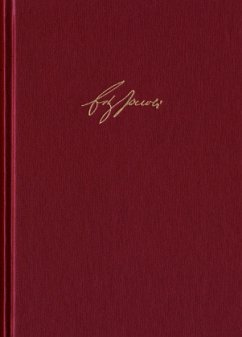The letters in the second volume show Jacobi at the height of his professional and political career. As a minister and privy councillor for the department of customs and trade, he saw to it that serfdom and compulsory labor were abolished in Palatinate-Bavaria. It was during this time that he wrote the two novels 'Eduard Allwills Papiere' (Eduard Allwill's Papers) and 'Woldemar'. His relationships with Wieland and Goethe were broken off after severe disputes. Among those with whom he corresponded, those who were important included J. K. Lavater, J. J. W. Heinse and J. G. Forster. In addition to his fateful friendship with Lessing, the second half of the volume is dominated by his connection to the Kreis von Münster (Münster Circle).
"Das gerade ist der Gewinn einer historisch-kritischen Edition, dass der Leserschaft eine Suche, welche ihre Möglichkeiten sehr bald überschreitet, abgenommen wird. Man findet dank der Arbeit einiger Spezialisten in wünschenswerter Vollständigkeit jene Erläuterungen, welche durchweg Jacobis Briefwechsel verständlich machen. Es muss noch gesagt werden, dass Jacobi über die geistigen Bewegungen seiner Zeit bestens informiert war. Der Briefwechsel gibt daher ein lebendiges Bild der Bewegungen jener für die Geistesgeschichte so bedeutsamen Epoche, und so eröffnet sich dem Leser ein weiter Blick in die Welt des späten achtzehnten Jahrhundert." Wilhelm G. Jacobs, Philosophisches Jahrbuch

